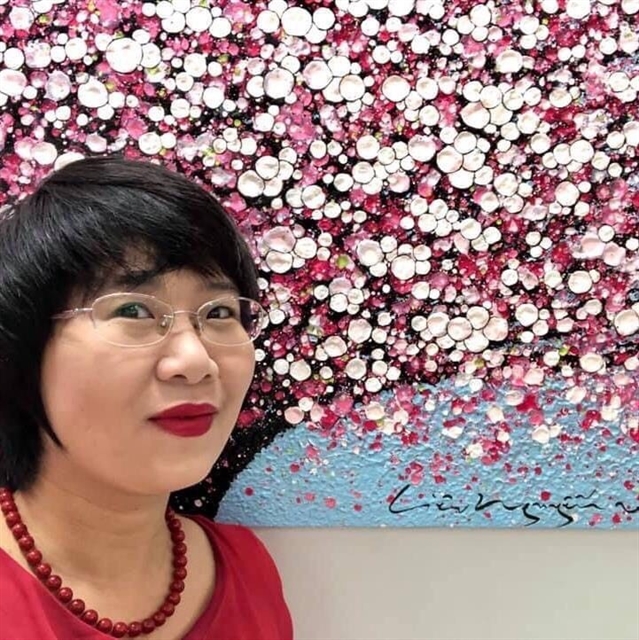[ad_1]

The HCM City Writers Association has recently set up the Translated Literature Council to honour translators. The council has three founding members: Hiền Nguyễn, deputy head of the Linguistic Department of Văn Lang College; Nguyễn Lệ Chi, director of Chibooks; and Dương Kim Thoa, editor of Tuổi Trẻ (Youth) newspaper’s International News Desk.
Việt Văn from the Lao Động (Labourer) newspaper speaks with Chi about the council and its performance in the future.
You are one of the council’s founding members. How was the council born?
I was surprised and moved when I was informed by Trịnh Bích Ngân, chairwoman of the HCM City Writers Association, about the establishment of the council.
I have been translating for more than 20 years and the council’s establishment is a great way for translators like me to be honoured. It is a big joy.
I think that the council’s establishment is necessary for Việt Nam’s integration into the regional and international publishing market.
About 60-70 per cent of books on the Vietnamese market are translated, since Việt Nam joined the Berne Convention. But there were not any organisations responsible for assessing these translated works.
The translators work independently and do not have any way of promoting their profession or improving their skills. So the council’s establishment is a good sign.
The council aims to popularise Vietnamese literary works internationally by translating them into different languages. Could you tell me about how Vietnamese literature has been popularised in recent years and what more can be done?
Vietnamese literature has been introduced to the world thanks to interpersonal relationships between translators and publishing houses or book companies.
Foreign translators know of Việt Nam’s outstanding literary works through their friends’ recommendations or research. They read, translate and publish Vietnamese great works of literature abroad.
This is a good method. However, the number of Vietnamese books being translated is not high, because it depends on the discovery and relationship of the translators.
It is the same with Vietnamese translators — they have relationships with international publishing houses. They also contribute popular Vietnamese books to the world.
Thus, popularising Vietnamese books is limited and depends on individuals.
If the council is financially supported by the State or other bodies, and the council has enough money to translate dozens of books per year, we can select good books and translate them into English or other foreign languages. Then we can bring these translated books to introduce at book fairs in the region and abroad.
This will absolutely increase the number of translated books and it will not take a long time.
How is it to translate foreign literary books into Vietnamese? What is the biggest challenge for the council?
The most difficult thing for translators is that they don’t have any organisation which helps them to upgrade their skills or life experiences.
If the translators have professional activities, such as translation seminars or they have a chance to attend an international book fair, I believe that their book assessment and their choice to translate will change.
The translators will be active in choosing books to translate and won’t have to wait for books from the publishing houses.
Chibooks has introduced foreign books to Vietnamese readers. What are the criteria to choose and translate a foreign book into Vietnamese?
It is always the quality of a book. We choose the book to translate based on factors including quality, value and suitability with Vietnamese readers.
Chibooks focuses on Vietnamese culture books with regional characters. We also continue to publish books on top Asian businessmen and Vietnamese autobiographical books aimed at introducing life experiences to readers.
We want to have more book genres to serve the readers. During the past two years of the pandemic, meditation and self-help books are more popular. These books help readers to stay calm, spread love and feel happy.
As a writer, you have published children’s books. What are you writing and what’s writing mean to you?
Writing is my life and I still write. At present, I’m writing a coming-of-age book for a foreign youth publishing house. If the draft is approved the book will be translated into Chinese and published in China first. Later I will sell copyright to other countries. VNS
[ad_2]
Source link
